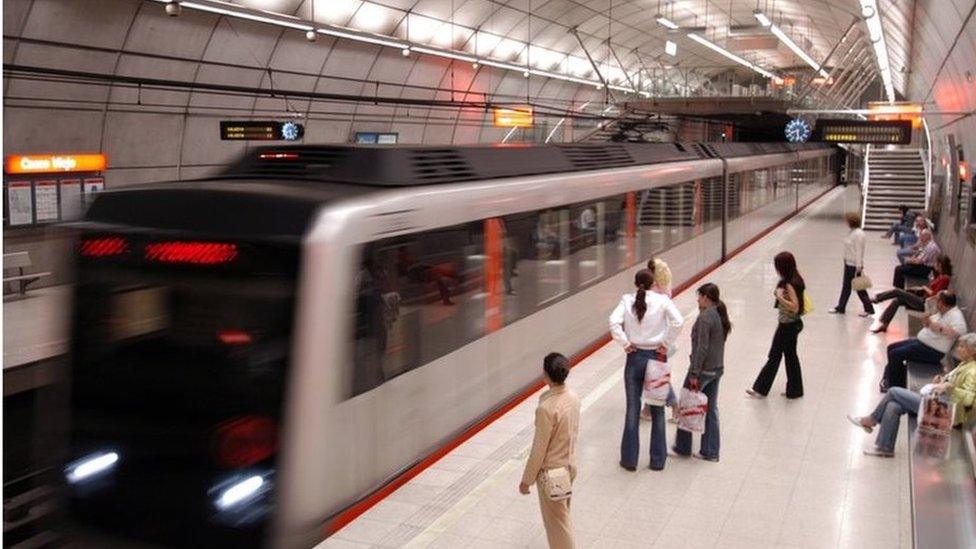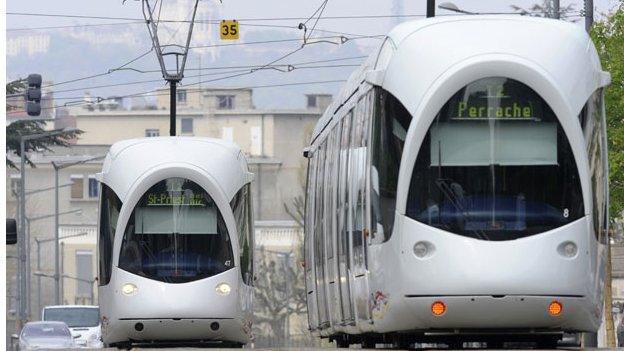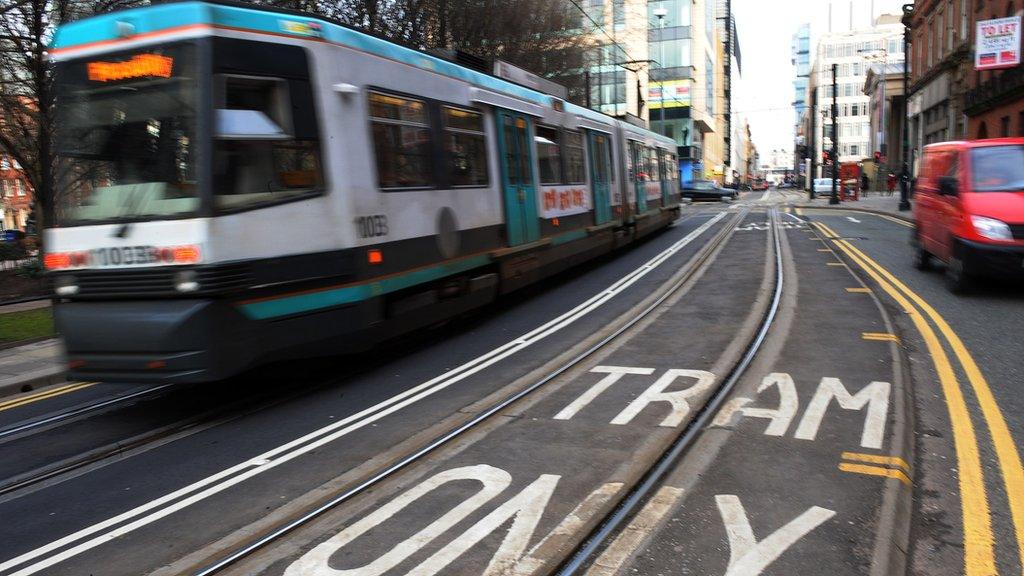Metro 'not silver bullet' for south Wales economy
- Published
The animated video shows some of the £2bn Metro's additions
The proposed Metro transport system is not a "silver bullet" for south Wales' economy, a report for the Federation of Small Business Wales has said.
If not designed with communities in mind, the network could "cut across" existing local economies and weaken them even further, it added.
Regeneration expert Dr Mark Lang said it was still not known who would really benefit from the Metro.
"Transport like this will on its own not fix the Welsh economy " he said.
Dr Mark Lang said there was a danger the south Wales Metro would not benefit local economies outside Cardiff
He also questioned how some low income valleys commuters would benefit unless Metro fares were heavily subsidised.
Dr Lang told BBC Wales the "real danger" was that it would become "an improvement to commuting for middle class, reasonably well-off people to get into Cardiff for jobs that exist here already".
He was commissioned by the FSB to look at the Metro's potential impact in the Cardiff Capital Region.
Dr Lang said while that brought positives for workers and would potentially help the Cardiff economy, he questioned what it did for other local economies in south Wales.
To have real impact, his report said there needed to be more research into where people work, shop and access services like health care.
"We need to plan carefully where the infrastructure will be and its impact on local economies," he said.

Studies have looked at how small businesses can be squeezed by hubs at urban metro systems like this one in Bilbao, Spain
"Will they support small local business or draw people out of communities?"
Up to £600m is being spent on the first phase of the Metro until 2020.
It is likely to be a mix of light rail, trams, improved trains and faster buses in Cardiff and the valleys. The eventual cost has been estimated at being between £2bn and £4bn.

Report findings
"Some ambiguity" over the location of Metro with Welsh Government refusing to commit to a map, the costs of the investment and timescales for completion
Criticism of a "lack of clarity" over how the Metro will be delivered and said ministers appeared "to bundle a range of transport projects together that claim to move the Metro forward"
The planned new £241m specialist critical care centre at Llanfrechfa Grange near Cwmbran was a "surprising omission" from the potential Metro map. It recommends a reappraisal of the map to ensure the Metro meets economic and social needs
Dr Lang's report casts a "critical friend's eye" over the proposals and highlighted that similar projects elsewhere in the world had not necessarily produced positive urban renewal and regeneration.
Driverless pods were suggested to link the city centre and Cardiff Bay in 2002
He pointed to studies looking at similar projects in San Francisco and Bilbao, Spain, which found little direct impact on land use and potential negative effects on small businesses near transport hubs respectively.
Dr Lang urged more research into how towns and cities in the region are interconnected and said there was a "strong case" for a conversation with communities and local businesses about their priorities and to ensure consultation was not tokenistic.
FSB Wales policy unit chairwoman Janet Jones said: "Whilst there is broad support for the Metro project, important questions remain over what sort of economic impact the scheme will have."
She said the FSB was particularly concerned that any regeneration benefits from the project "must be felt not only at Cardiff but in communities across south east Wales that are served by the Metro network".
- Published30 June 2015

- Published30 June 2015
